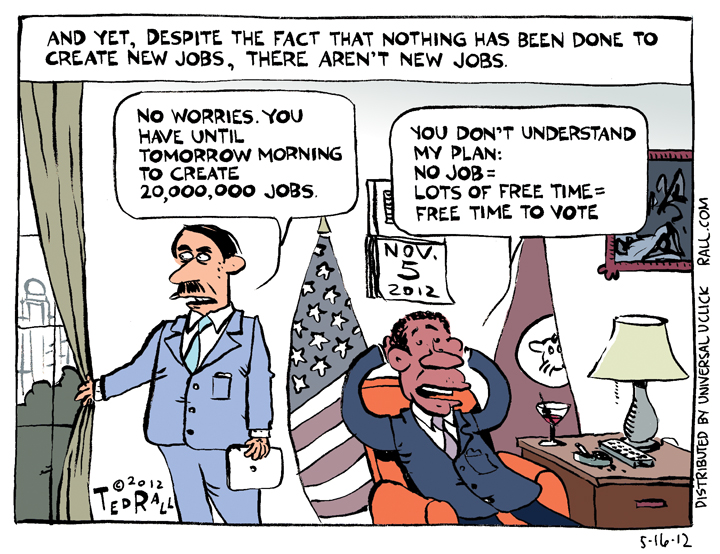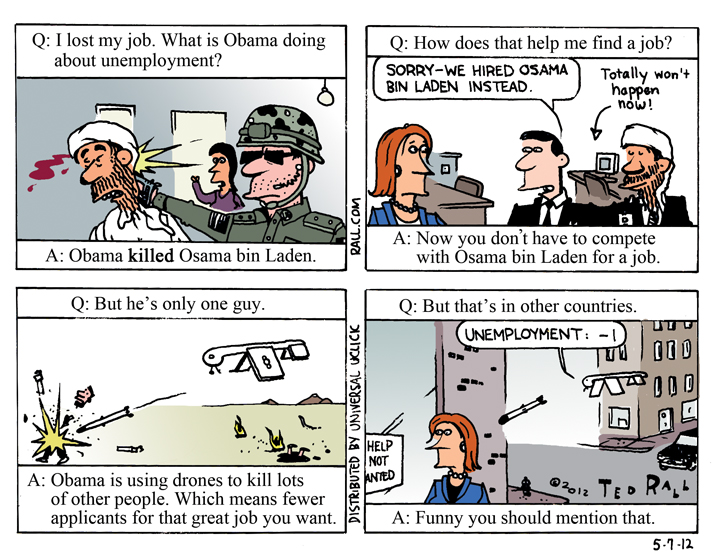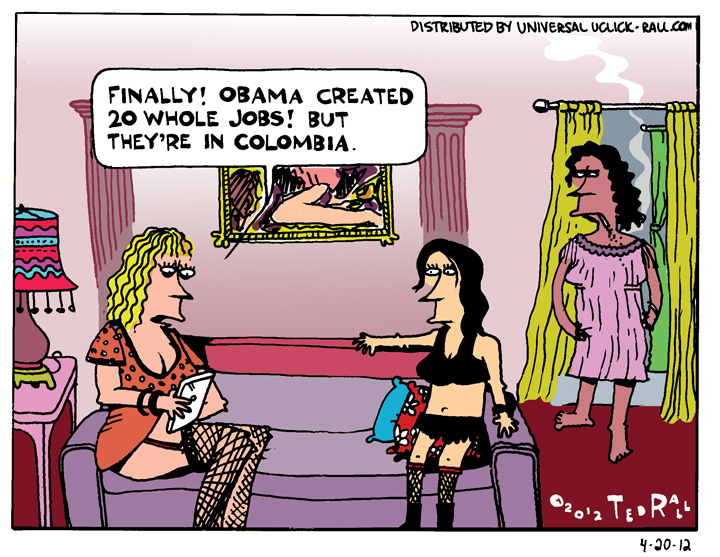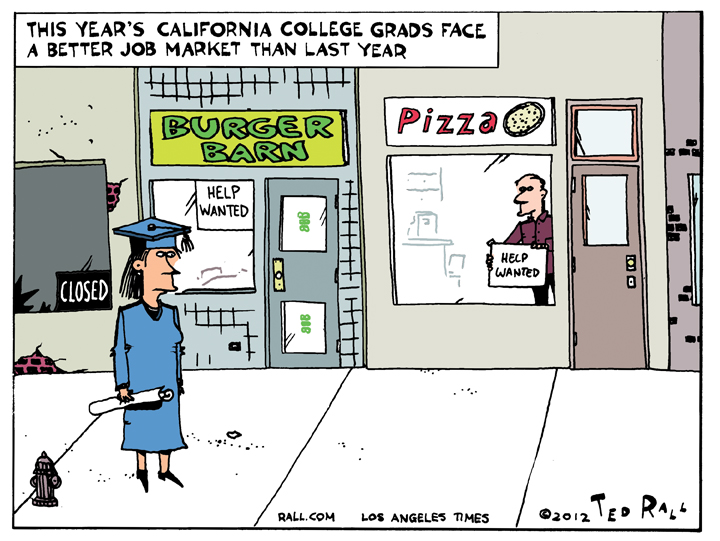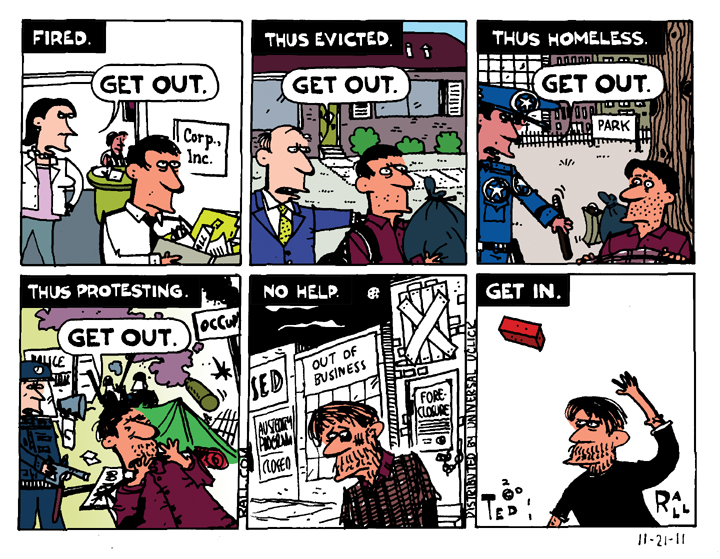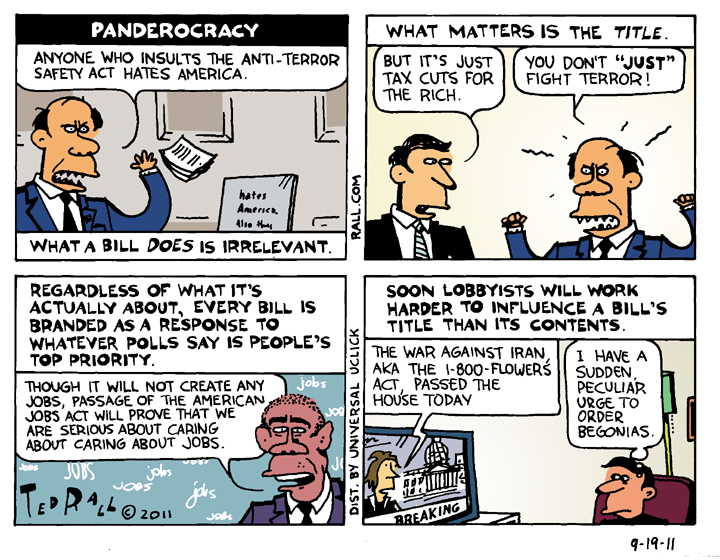Behind the New Jobs Numbers, Dull Statistics Tell a Terrifying Story
“Worst U.S. Jobs Data in a Year Signals Stalling Recovery,” The New York Times ran as its lead headline on June 2. The Labor Department reported that the U.S. economy created 69,000 jobs during May. The three-month job-creation average was 96,000. Unemployment ticked up a tenth of a point, from 8.1 to 8.2 percent.
Once again, the media is downplaying a blockbuster story—recovery? what recovery?—by dulling it down with a pile of dry, impenetrable statistics.
Wonder why you can’t find a job or get a raise, and your house has been sitting on the market for years? The new jobs numbers are the key to understanding how bad the economy is—and why it’s not likely to get better any time soon.
Q: If nearly 100,000 Americans per month are finding jobs, why are securities markets tumbling?
A: Because it’s actually a net jobs loss. The U.S. population is growing, so the work force is too. We need 125,000 new jobs a month just to keep up with population growth. “In the last 22 months, businesses have created more than three million jobs,” President Obama claimed in his January 2012 State of the Union speech. True or not, a more straightforward claim would have been net job creation: 350,000 jobs over 22 months, or 15,000 per month. (Politifact rates Obama’s line as Half True.)
Q: If we’re losing jobs, why is the unemployment rate hovering? Why isn’t it going up faster?
A: Discouraged workers, i.e. people who would take a job, but have given up looking, don’t count as officially unemployed. Neither do those whose unemployment benefits have run out, yet haven’t found new work. Ditto for those who are underemployed—a laid-off middle manager who earned $100,000, now scraping by on a fraction of her former salary by taking odd jobs.
The officially unemployed—men and women who lost their jobs recently enough to still collect unemployment benefits—are remaining more or less steady. Since the number of long-term unemployed is rising, however, the unofficially unemployed is growing fast—but neither the government nor the media acknowledges their existence.
To muddy things up even further, the feds have rejiggered the numbers to make it look like there are fewer officially unemployed than there used to be. The respected blog Shadow Government Statistics, which calculates unemployment using the way the Labor Department did until the 1980s, says this Alternate Unemployment Rate is about 23 percent—about the same as at the peak of the Great Depression.
No wonder why there are so many empty storefronts.
The really interesting number is the Labor Force Participation Rate: how many people want a job, but don’t bother blitzing the Internet with their resume? Melinda Pitts of the Atlanta branch of the Federal Reserve Bank points to “marginally attached” “nonparticipants” in the labor force. “A nonparticipant who is marginally attached indicates they want employment or are available for employment. Also, they indicate having looked for a job in the previous year but not actively looking for a job at present,” she says. This group is failing to return to the “real” labor force at higher rates than in the past.
Q: So what’s up?
A: The jobs figures reflect a big structural problem in the U.S. economy. Real wages have been steadily dropping since the 1970s. We’re creating a permanent class of unemployed and underemployed. And there’s no help on the way from government or private sector, both of which are cutting back and laying off. Even if we got “up” to 125,000 new jobs a month, that would still leave at least 8.1 million people who lost jobs between 2007 and 2010 out of work.
That’s a huge hole. Taking Obama at his Half True word of 15,000 net new jobs a month, it would take 45 years to find gigs for the victims of the 2007-to-2010 subprime mortgage meltdown. Only something big and dramatic, like a new FDR-style Works Progress Administration, could fill it. “Normal” post-recession growth can’t do it. And this recovery—if you can call it that—is anemic at best.
Q: Anything else?
A: Yeah. Jobs don’t equal jobs. If you replace a $70,000-a-year job with a $60,000-a-year job, that’s a net decline in income. Politicians will claim that the old lost jobs have been replaced with new ones, but multiply that trend over millions of workers, and you’ll see reduced consumer spending. Among the still-employed, inflation-adjusted wages are dropping.
Oh, and what about the debts people accrued while they were between jobs? Because many employers refuse to hire jobseekers with bad credit, the unemployed are punished for being unemployed with…more unemployment. As for those who return to work, even workers who get the same pay have to pay off credit card bills they lived on.
The economy is a whale of a problem. But politicians of both parties—and the media—are only paying it the thinnest of lip service.
(Ted Rall’s next book is “The Book of Obama: How We Went From Hope and Change to the Age of Revolt,” out this week. His website is tedrall.com. This column originally appeared at MSNBC.com)
(C) 2012 TED RALL, ALL RIGHTS RESERVED.

